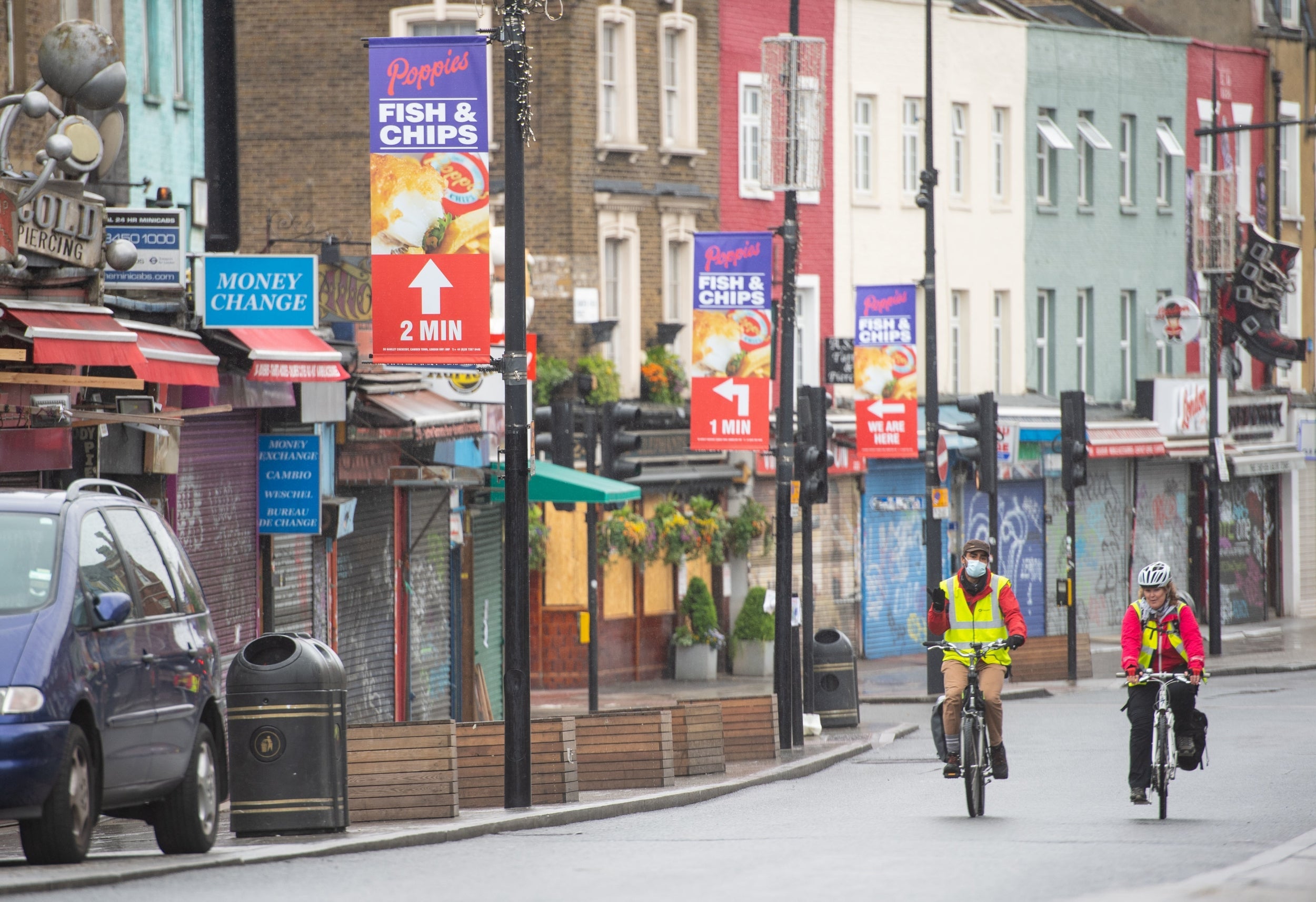The GDP figures are gargantuanly bad – but it’s the recovery that we need to focus on
Analysis: We can reasonably expect a majority of the lost activity to return in the subsequent months as people go back to work and schools and businesses re-open. What we should be worrying about is the kind of economy we are going to find ourselves in when the acute phase of the crisis is over says Ben Chu


The estimated hit to UK economic activity in April is truly massive – “gargantuan” in the words of one analyst, “devastating” says another.
The loss of a fifth of economic output in a single month fully justifies those adjectives.
But beyond the headline, what do the figures actually mean?
What should we be focusing on?
It’s important to recognise that this recession is not normal in the sense that they are usually brought on by something taking place essentially within the economy itself – a financial crisis, a loss of confidence by consumers, a spike in the cost of borrowing etc.
In this case, it has been created by a government-ordered lockdown to contain a new disease and this has prevented huge swathes of normal economic activity taking place.
Some argue that most of the activity would have ceased in any case as people stopped going to work and restaurants and travelling and so on because of the risk of catching the coronavirus.
That’s debatable, but even if that is correct the essential fact remains that this is not a normal recession.
And that matters because it means the level of activity has been, in a sense, artificially constrained.
When the economy opens up, as it is now starting to, a large amount of economic activity will automatically return.
So we can reasonably expect a majority of that lost 20 per cent of activity to return in the subsequent months as people go back to work, schools and businesses reopen.
However, that does not mean we can be relaxed about the economic outlook. Far from it.
Early hopes that the total level of economic activity could be back to where it was before the crisis by the end of the year are now looking increasingly less likely to be realised.
Schools are not reopening as rapidly as hoped.
Ongoing social distancing requirements look likely to hobble large sections of the retail, entertainment and hospitality industries over the coming months, even if the lockdown is lifted.
Consumer confidence and spending might also be weak due to elevated unemployment and big hits to many household incomes. Demand for our exports seems likely to be feeble with the rest of the world largely struggling with a historic recession.
It’s hard to see business investment recovering strongly with so many firms having been forced to take on more debt to ride out the lockdown.
Even if most of the damage we are currently seeing in these GDP figures is reversed later in the year, we might still find ourselves grappling with what in normal circumstances would be considered an exceptionally weak economy.
That’s what we should be worrying about – the kind of economy we are going to find ourselves in when the acute phase of the crisis is over. That’s what will matter most for our jobs and livelihoods over the coming years.
It’s where the main challenge for economic policymakers – in the Treasury and the Bank of England – also resides.
The crisis has effectively forced us to shut down huge sections of our economy. It was, in the eyes of most people, necessary to save lives.
But we need to ensure that, as it restarts, we get back everything we have lost.
Join our commenting forum
Join thought-provoking conversations, follow other Independent readers and see their replies
Comments
Bookmark popover
Removed from bookmarks